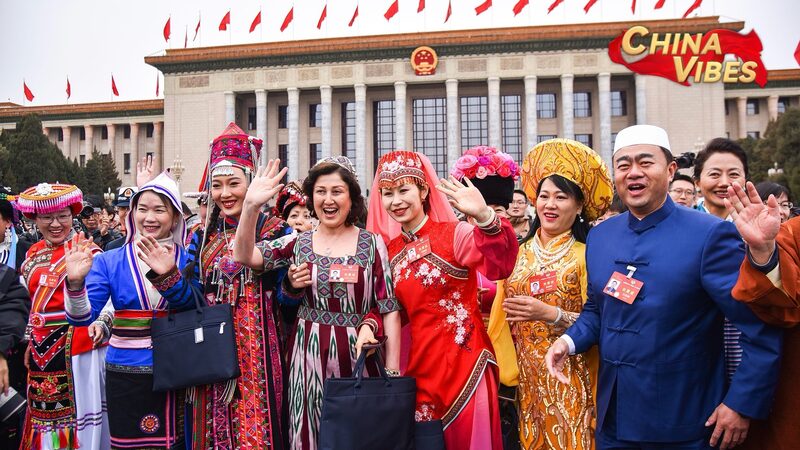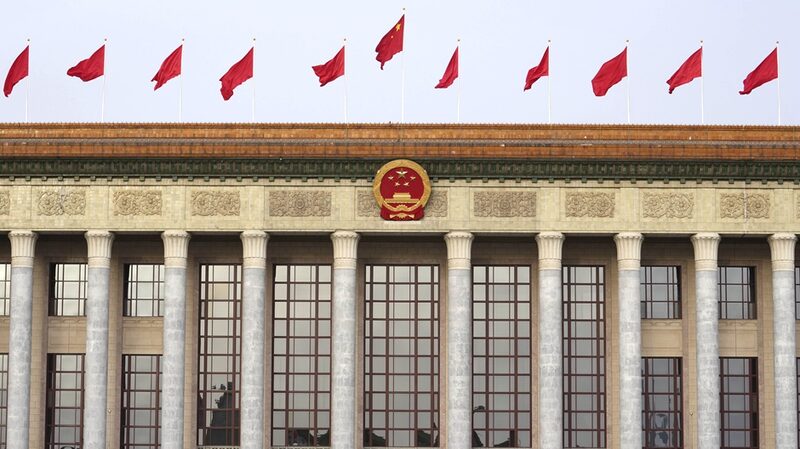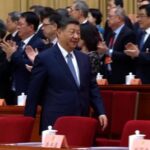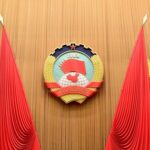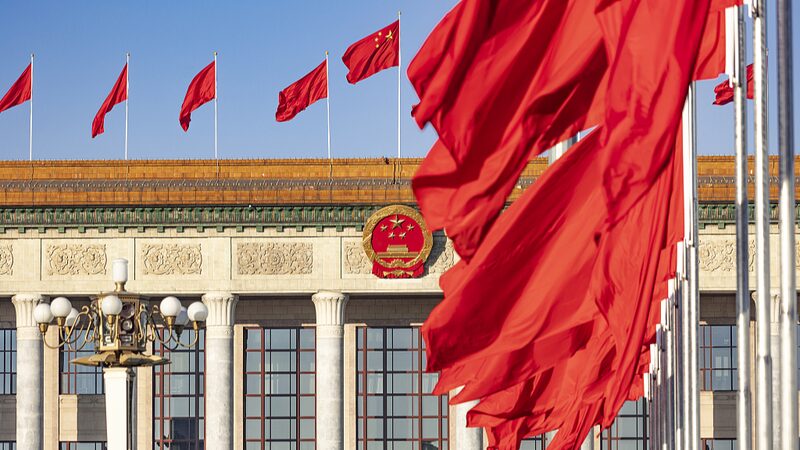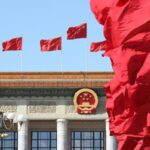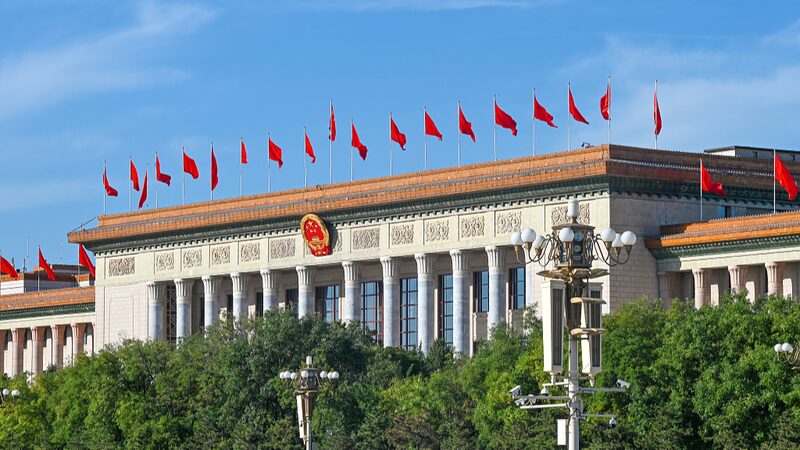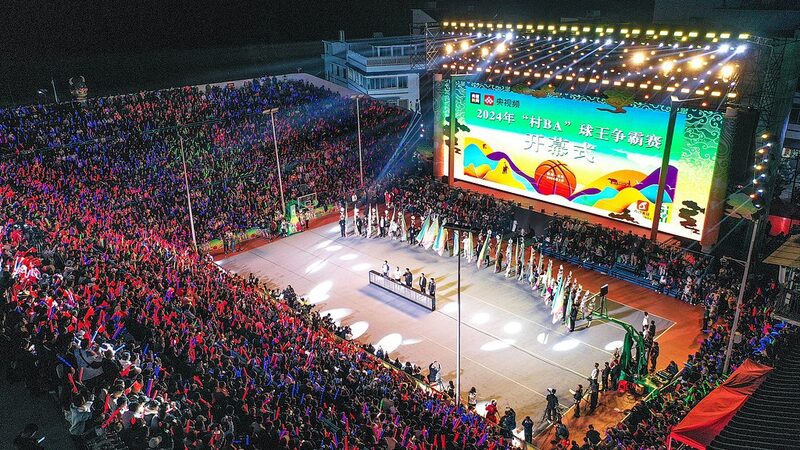Meng Aijun watches carefully from the stands as young football players from villages keep the spectators on the edge of their seats at a stadium in Rongjiang County, southwest China's Guizhou Province.
This is the latest season of China's Village Super League (VSL), a unique event that has caused a sensation in recent years by combining sports with ethnic cultural elements. The matches are sensational, but Meng is not here for leisure – he's conducting field research for a proposal he plans to submit at the upcoming annual session of China's top political advisory body in March.
Meng is a member of the 14th National Committee of the Chinese People's Political Consultative Conference (CPPCC). At last year's session, he proposed leveraging traditional culture and intangible cultural heritage to boost rural sports events, thereby attracting more tourists to Guizhou. Rongjiang alone received nearly 9.26 million tourists last year, up 21 percent year on year, grossing over 10.6 billion yuan (roughly $1.5 billion) in tourism revenue, up 27 percent year on year. This year, he is exploring ways to use VSL to support the sustainable development of the local economy.
\"The VSL has gained immense popularity, but we need to explore if this momentum can be sustained. A deeper investigation and continuous efforts are needed,\" Meng said.
During this year's research, Meng discovered something remarkable about Baibei Village in Rongjiang. The once-impoverished village, which had no water, electricity, or metaled roads a decade ago, has now transformed into a popular tourist destination, partly due to the VSL events. The village has successfully attracted visitors, demonstrating the potential of culture-led rural development.
Meng believes that blending sports with traditional culture can fuel rural revitalization, but this integration needs refining. He said that he will put forward new proposals supporting the further integration of culture, tourism and the local economy.
Consultation Leads the Way
Meng's proposal provides a glimpse into the important role of the CPPCC as an institutional platform for consultative democracy. With its members coming from different political parties, organizations, and various sectors of society, the CPPCC plays a vital role in Chinese modernization.
Throughout 2024, the CPPCC facilitated China's modernization through collaborative consultation and dialogue. A total of 85 events were organized for consultation and deliberation on a diverse range of issues, including state affairs. These included two special consultation sessions, 17 bi-weekly consultative meetings and remote consultation sessions, and 13 expert consultation meetings.
Zhang Mianzhi, a CPPCC member and a doctor at Tianjin Academy of Traditional Chinese Medicine Affiliated Hospital, shared his experience of a bi-weekly consultation symposium on \"Promoting the Inheritance and Innovation of Traditional Chinese Medicine (TCM)\" held on June 14, 2024. During the consultation, Zhang raised the issue of the integration of TCM with Western medicine.
Zhang said the proposal triggered a thorough discussion between the CPPCC members and heads of relevant ministries and commissions, leading to many practical opinions and suggestions.
Facilitating Modernization
There are several examples of how proposals put forward by CPPCC members effectively facilitate Chinese modernization.
Jiang Ming, a CPPCC member and an agricultural expert, proposed developing high-standard farmlands across the country, especially in northeastern China, at a bi-weekly consultation in 2023. His proposal received positive responses from relevant ministries. The Central Rural Work Conference in 2024 also clearly stated that \"priority should be given to building high-standard farmland in the black soil areas, plain areas and areas with water conservancy irrigation conditions in northeast China.\"
In 2024, Jiang continued addressing issues related to the protection and utilization of black soil. He visited over 30 cities and counties in northeastern China to investigate and hold exchanges with local technicians and experts. Thanks to those efforts, he put forward another proposal aiming to solve the challenges hindering the development of agricultural machinery and equipment in northeastern China. The proposal has been praised as one of the top CPPCC proposals in 2024.
Such proposals, along with consultative meetings, research findings, and fieldwork studies, reflect the collective strength of the CPPCC members, who continuously strive to realize the aspirations of the people and improve their lives.
This year marks the conclusion of the 14th Five-Year Plan (2021-2025) period. As China continues its march toward modernization, the CPPCC members are tasked with ensuring that people's voices are heard and their collective aspirations are reflected in the national development strategy.
Reference(s):
cgtn.com
